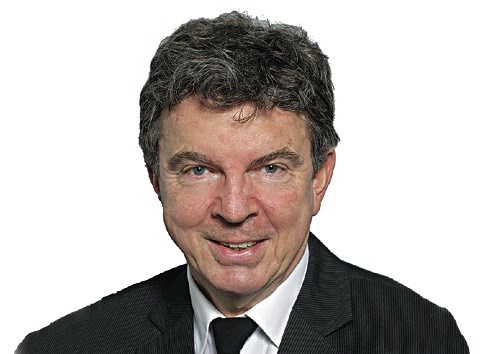Four days before the official campaign begins, the New Democratic Party is as exposed and vulnerable as it’s likely going to get.
They got the negatives out of way early, releasing a fiscal plan that promises at least three years of deficits, higher taxes and elimination of programs that were going to put money directly in people’s pockets.
The job next week is to minimize those downsides by rolling out some more appealing ideas. Before that starts, it’s worth looking at the framework they created for themselves.
It’s based on a slippery concept that even if the NDP wins the election, the B.C. Liberals will still somehow be responsible for budget deficits for the next three years. This is the kind of imaginary world that new B.C. governments always build for themselves.
The NDP earlier mounted a concerted attack against the Liberal notion that the budget is balanced. This week, they assigned exact values to how far in the red they think the province is operating. Finance critic Bruce Ralston sees deficits of $790 million, $847 million and $452 million over the next three years.
An NDP government would operate on that basis. But it will insist that those won’t be NDP deficits. They’ll be “the real Liberal deficits.” And after inventing all that room to manoeuvre, he promised an NDP government would stay within it, and not add more red ink.
This wouldn’t normally go over that well. If you win the election, you start making the decisions, and your spending problem is your spending problem, not somebody else’s. But polling shows there isn’t a lot of faith in the Liberals’ view that the budget is balanced and the government is $197 million to the good.
So there may be some grudging acceptance of the idea that an NDP government would start in the red, not with a surplus. It’s precisely what the Liberals did when they took power in 2001. They inherited a balanced budget and promptly discovered a multibillion-dollar “structural deficit.” It happens every time power changes hands.
The tax increases that the NDP owned up to are neutralized a bit by the fact that the Liberals have similar ideas in mind.
The NDP wants to bump the corporate tax to 12 per cent from 11, but the Liberals just raised it to 11 per cent from 10.
The NDP plans to raise income tax on earners over $150,000 by two points. The Liberals announced the same thing in February’s budget, but planned to apply it for just two years.
The NDP has two other tax hikes in mind that aren’t matched by the Liberals. They want to collect $200 million more from the oil and gas industry by way of the carbon tax. It’s a fairly obscure revenue measure. And it’s a lot more sensible than their last campaign, when they rejected the carbon tax and lost environmental support.
They’re also looking for $375 million more in taxes from banks and the bigger credit unions. Those are prime targets, and voters will probably be unmoved to discover that the NDP would be gunning for them.
The two moves the NDP announced for programs that affect people directly are quite revealing.
The party plans to “repurpose” $146 million that the Liberals promised to deliver directly to 180,000 families by way of an early-childhood tax benefit. It would have knocked about $600 a year off the tax return for people with young children. But the program wouldn’t have started until 2015. So families are losing a promised benefit, not one they enjoy today.
And a training and education savings grant that would have deposited $1,200 into any B.C. child’s registered education savings plan on their sixth birthday would also be cancelled. Liberals have banked $300 million for that plan over the past few years. But the money would be repurposed by the NDP, to a new poverty-reduction strategy.
It’s a good illustration of a philosophical difference between the two sides. Liberals would give people relatively small grants and let them figure out how to use the money. New Democrats would keep the money and count on getting more value out of it by funding a government program.
Running deficits, shifting blame and taking money back from people aren’t appealing propositions. So they’ll change the channel as soon as possible next week.



